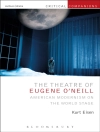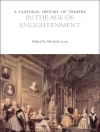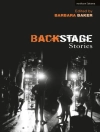This book examines British playwrights‘ responses to the work of Shakespeare and his contemporaries since 1945, from Tom Stoppard’s
Rosencrantz and Guildenstern are Dead to Sarah Kane’s
Blasted and Jez Butterworth’s
Jerusalem. Using the work of Julie Sanders and others working in the fields of Adaptation Studies and intertextual criticism, it argues that this relatively neglected area of drama, widely considered to be adaptation, should instead be considered as appropriation - as work that often mounts challenges to the ideologies and orthodoxies within Elizabethan and Jacobean drama, and questions the legitimacy and cultural authority of Shakespeare’s legacy. The book discusses the work of Howard Barker, Peter Barnes, Edward Bond, Howard Brenton, David Edgar, Elaine Feinstein and the Women’s Theatre Group, David Greig, Sarah Kane, Dennis Kelly, Bernard Kopps, Charles Marowitz, Julia Pascal and Arnold Wesker.
Inhaltsverzeichnis
Contents.- Acknowledgements.- 1. Introduction: Appropriating the Past.- 2. Why Rewrite Shakespeare & his Contemporaries?.- 3. A Host of Lears: Howard Barker’s Seven Lears, Elaine Feinstein’s Lear’s Daughters and Sarah Kane’s Blasted.- 4. ‘Love in the Museum’: Howard Barker, the Erotic and the Classical Text.- 5. ‘If Power Change Purpose’: Appropriation and the Shakespearian Despot.- 6. Anyone for Venice? Wesker. Marowitz & Pascal Appropriate The Merchant of Venice.- 7. Festive Tragedy: Jez Butterworth’s Jerusalem.- Bibliography.- Index.
Über den Autor
Graham Saunders is Allardyce Nicol Professor of Drama Arts at the University of Birmingham, UK. He is author of Love me or Kill me: Sarah Kane and the Theatre of Extremes (2002), About Kane: the Playwright and the Work (2009), Patrick Marber’s Closer (2008) and British Theatre Companies 1980-1994 (2015). He is co-editor of Cool Britannia: Political Theatre in the 1990s (Palgrave, 2008) and Sarah Kane in Context (2010).












